Race at the Top
Race at the Top
Asian Americans and Whites in Pursuit of the American Dream in Suburban Schools
Natasha Warikoo
The University of Chicago Press | Chicago and London
The University of Chicago Press, Chicago 60637 The University of Chicago Press, Ltd., London 2022 by The University of Chicago All rights reserved. No part of this book may be used or reproduced in any manner whatsoever without written permission, except in the case of brief quotations in critical articles and reviews. For more information, contact the University of Chicago Press, 1427 E. 60th St., Chicago, IL 60637. Published 2022 Printed in the United States of America 31 30 29 28 27 26 25 24 23 22 1 2 3 4 5 ISBN-13: 978-0-226-63681-8 (cloth) ISBN-13: 978-0-226-81933-4 (e-book) DOI: https://doi.org/10.7208/chicago/9780226819334.001.0001 Library of Congress Cataloging-in-Publication Data Names: Warikoo, Natasha Kumar, 1973 author. Title: Race at the top : Asian Americans and Whites in pursuit of the American dream in suburban schools / Natasha Warikoo. Other titles: Asian Americans and Whites in pursuit of the American dream in suburban schools Description: Chicago ; London : The University of Chicago Press, 2022. | Includes bibliographical references and index. Identifiers: LCCN 2021054530 | ISBN 9780226636818 (cloth) | ISBN 9780226819334 (ebook) Subjects: LCSH: Home and schoolUnited States. | Academic achievementSocial aspects. | Suburban high schoolsPublic opinion. | Education, SecondaryPublic opinion. | High school studentsUnited StatesAttitudes. | Asian American high school studentsAttitudes. | Elite (Social sciences)United StatesAttitudes. | ParentsUnited StatesAttitudes. | Asian American parentsUnited StatesAttitudes. | United StatesRace relations. Classification: LCC LC225.3 .W366 2022 | DDC 373.09173/3dc23/eng/20211109 LC record available at https://lccn.loc.gov/2021054530

This paper meets the requirements of ANSI/NISO Z39.48-1992 (Permanence of Paper).
Contents
Sabrina is forty-five and white, a mother of three.
Her house looks like picture-perfect suburban wealtha broad, shimmering lawn, tall trees, big windowsclose, but not too close, to the quaint main street of her town. Street parking is not allowed.
Sabrina brewed coffee for us while I sat on a barstool at the island in her kitchen. She wore stylish boots, fitted pants, a dress shirt. It was quiet: her kids were at school, her husband at work. She told me that she and her family moved to the town when her oldest was about to start kindergarten so that the children could attend the towns highly regarded schools. From the moment Sabrina started speaking, it was clear that her days were filled with supporting her kids and their schools. Achievement and happiness were a full-time job; the skills required were numerous.
When Sabrinas son Michael was not placed in the math level she felt he deserved in eighth grade, she and her husband met with Michaels teacher. Can you help us understand why this is the recommendation?
Beyond academics, Sabrina supported Michaels aspirations in sports, too, especially soccer and lacrosse. Sabrinas cultivation of Michaels athletic skills when he was young seemed to be paying off. He had previously played with an elite town soccer teammore elite than the usual town and travel teamsbut quit that team to join an even more elite private club lacrosse team in anticipation of going to high school and trying to make the team. Club teams in her area typically cost thousands of dollars every year, and provide, among other things, a paid professional coach and game locations well beyond the usual maximum hour-long drive for travel teams. Weekend tournaments and costly hotel stays are common. Again, I found myself feeling uneasy, partly for the implications for inequality and partly, I have to admit, because the conversation was beginning to make me worry about my own parenting, which was feeling more lax by the minute. The phrase intensive parenting kept coming to mind as she shared her kids accomplishments and problem-solved their difficulties.
Sabrina also was adamant about the importance of racial diversity. She particularly appreciated her towns busing program that brought a small number of studentsmostly Black and Latinxfrom the urban school district near her childrens schools. In fact, Sabrinas family volunteered to be the local contact for a child in the program for a number of years, frequently having that child over to their house. Beyond the busing program, the number of Asian immigrants was growing in her townin fact, Michael was one of only three white students in his class. She gave me her take on those changes:
When I look at his kindergarten picture, it looks like the UN, which we love. Diversity is important to us, something we embrace. And it was about 15 percent [students of color] when we moved in. And now I think we have, at least within the school-age population, close to 40 percent. So that is a huge change in ten years.... Im delighted were preparing our kids for a flat world.
But as she gushed about diversity, a sense of dismay crept into our conversation. She hesitated, uneasy, before describing the growing diversity as also having some very meaningful implications on life in this town. Sabrina was frustrated at how other families decisions sometimes negatively affected her own children. She got most visibly upset when she described how her children sometimes lose out to kids whose parents do things differently.
Sabrina particularly resented Michaels Asian American peers who improved their math skills by taking supplementary classes outside of school. In fact, she blamed Michaels initial eighth-grade math placement on those classes. Michael told his mom that eighteen of the twenty-one students in his class had a supplementary math class outside of schoolhe was one of the three who did not. Given the matching numbers, I guessed that the other two white kids in class were the other two who did not do supplementary math. Sabrinas liberal identity may have prevented her from naming their ethnicities explicitly, but the association was implicit.
I felt myself getting defensive at Sabrinas disapproval. Those other parents could have been my own Indian immigrant parents a generation ago. If there had been supplementary math classes in my western Pennsylvania town, I am certain my parents would have signed me up. Instead, they assigned me pages of a math workbook every day during summer vacation before they went off to workand I did them. While I hated those assignmentsmostly, I think, because my red-headed best friend across the street never had any summer work, and so it added another reason for me to feel different in my predominantly white townas an adult I have more empathy for my parents choices. Still, after talking with parents like Sabrina I was happy that I did not live in a town like hers. I even felt a newfound appreciation for the gentle pace of my own childrens schoolsfewer demanding parents, less pressure. I wondered if I too would come to resent the parents Sabrina described if I lived in her town and felt my kids would need to sign up for a supplemental course if I wanted them to take honors math.
Sabrina lamented the impact of this intensive parenting on Michaels self-esteem and self-confidence: So my son is being compared to kids who are doing the supplemental math and hes suffering in his estimation of himself because of it. Sabrina labeled the impact of supplemental math on kids who do not participate comparative distress, claiming that it had led her child to think he wasnt good at math. These kids, she shook her head, think theyre stupid. She made her view clear: I think its a problem. And I think its creating some of the stress and the tension and the anxiety. The messagelike so many things in her townwas implicit but clear. Asian parenting choices make white children like her own feel less competent and miss out on advantages to which they feel they are entitled. She loved racial diversity and the prospect of a flat world, but when these things threatened her sons academic position, that love seemed to sour.
Next page
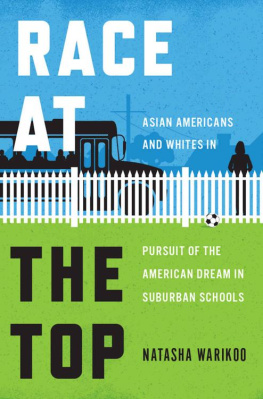

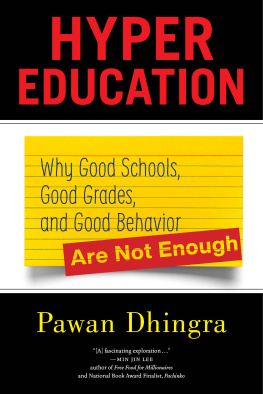
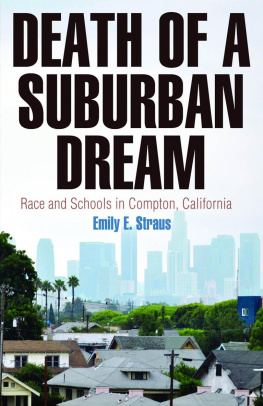

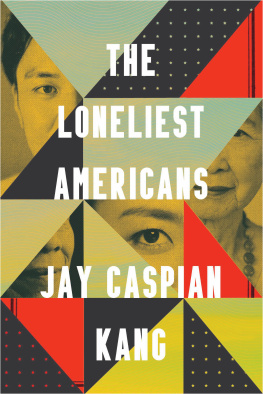
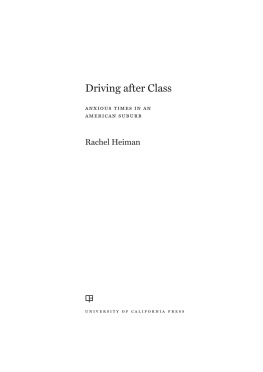
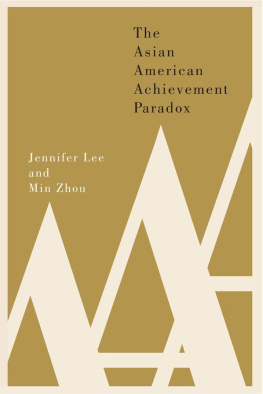
 This paper meets the requirements of ANSI/NISO Z39.48-1992 (Permanence of Paper).
This paper meets the requirements of ANSI/NISO Z39.48-1992 (Permanence of Paper).